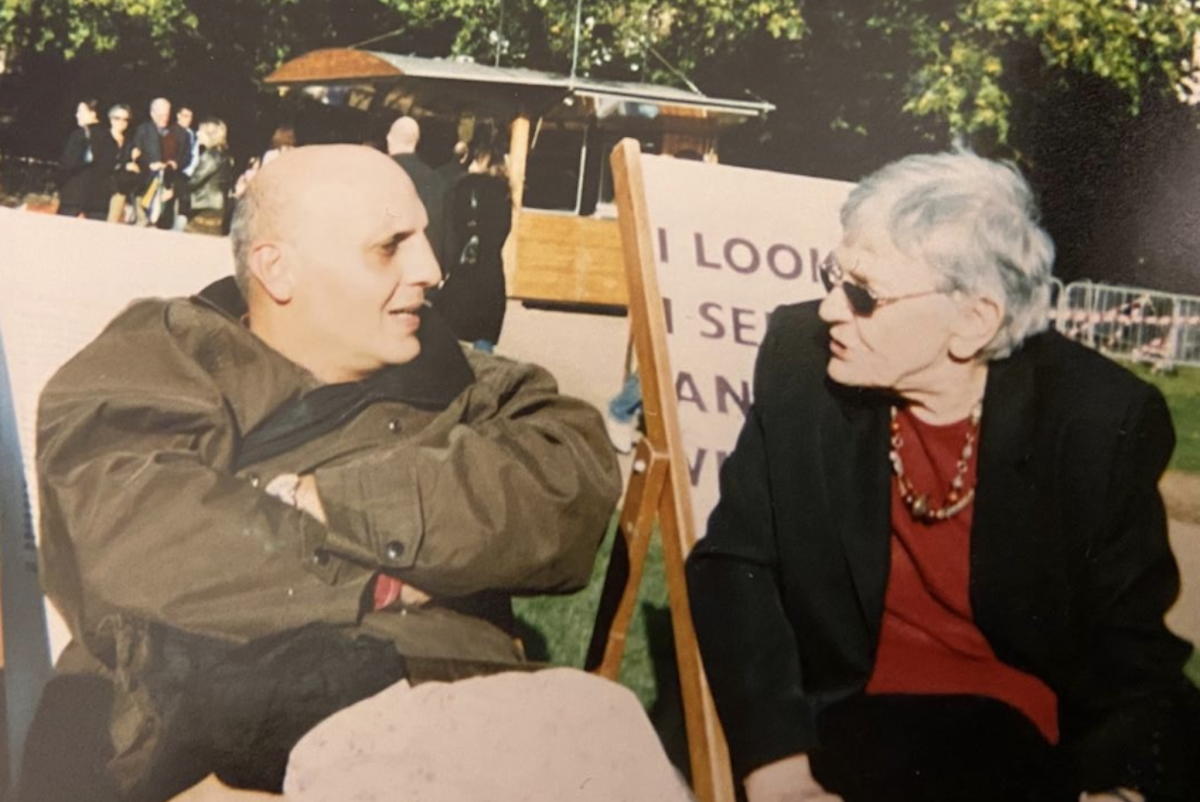by IMAD SABI

Although she became a lawyer late in life, Tamar Pelleg-Sryck worked tirelessly to defend Palestinian detainees like me in a profoundly unjust system.
To the Palestinians she defended in military courts, she was known simply as Tamar. Often dressed in black, she was instantly recognizable by her short-cropped white hair, glasses, and her ever-ready smile that would often give way to a chuckle. Tamar Pelleg-Sryck was a lawyer, a fierce human rights defender, a principled opponent of the Israeli occupation of the West Bank and Gaza, and a wonderful human being whose drive, intellect, and youthfulness never strayed, even in old age. On March 11, Tamar passed away at the age of 97.
I deeply mourn her passing, as I am sure do hundreds of Palestinians who have experienced the injustices and indignities of incarceration, interrogation, torture, and administrative detention, but who had Tamar defend them, as best she could, against the court system that is integral to the occupation.
I first met Tamar in the Megiddo Military Prison, where I was sent after receiving an administrative detention order in December 1995. In those early days after the signing of the Oslo Accords, the newly-installed Palestinian Authority was beginning to take control of the larger Palestinian cities in the West Bank. Before ceding that control, Israel started detaining outspoken opponents of the accords without any charges, branding them “enemies of peace.” As the number of these administrative detainees surged, Tamar started taking on some of their cases, including mine.
I cannot recall the precise details of our first meeting. In my hazy memory, it was a brief encounter on a cold, gray day, with the usual exchanges that take place at such meetings: news about family, initial thoughts about appealing the detention order, and questions about prison conditions. Tamar had initially hesitated to take my case, and so — not yet knowing her — I wasn’t sure I wanted her to be my lawyer.
But the more Tamar visited, the more we talked and got to know one other. The cold of that first day transformed into interpersonal warmth, grounded in mutual respect and genuine human connection. The visits grew longer as time went on. Tamar started bringing me books from her personal library. Both the long conversations and the books transported me out of the prison environment, with its brutal and degrading routines. Writers like Nadine Gordimer, Hanna Lévy-Hass (the mother of Haaretz journalist Amira Hass), Paul Auster, Jacobo Timmerman, William Styron, William Trevor, and many others kept me company, all of them brought to me by Tamar.
972 Magazine for more
